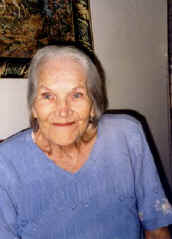Family cohesion challenged by sprawl and greed
by Jan Lundberg
A society based on private property and individualistic
gain must put the family second. Which is to say, we put humanity and our
own mother, for example, last. "Me first!"—what a sad thing not
to overcome, once infected by selfishness as a child surrounded by
materialism. The greed seed is planted young.
The truth is that love, mutual support and sharing are a
far better bet for long-term survival. Here’s one reason why:
"Dying with the most toys" is harder and harder
to achieve. That’s because of the trend toward ripping off the elderly.
The grip on one’s life (material things, as it is actually meant) loosens
in advancing age and physical infirmity even without diseases such as
Alzheimer’s. One’s wishes as old age may take its toll are often twisted
by opportunists. A conservator or guardian is not much protection, compared
to a functional family. But it is a rare family in the United States that
does not have at least one bad apple playing such games as stealing others’
inheritance.
A big reason for my believing this happens so commonly in
the U.S., and to a lesser extent in other consumer economies, is that elders
are treated as retired workers; they are not teachers of their
grandchildren. Grandparents are tossed aside for convenience or because
there isn’t enough time to care for them. Why isn’t there the time?
Because we are elsewhere, on the job or in schools. Choosing this way is
indicative of a culture’s questionable values.
Home school the child and keep Grandma home instead of in
the rest home? Oh no, that’s not what the global competitive economy is
about. But some of us question the global economy too, and would rather sing
for tips on the street than work for some big corporation. More time for
family, especially if they play too... hmm!
We are all so separate, and the nuclear family does not
provide secure support, when all someone has to do is go off to college and
never move back in. In the 1950s the GI bill and road building begot
sprawl-style suburban development, and it was common to go for this version
of wealth (actually mortgage debt). Endless paving undermined our extended
family structure by separating families and encouraging moving. Automobiles
made it easy to go "anywhere" and for junior to go live in a
college dorm or in an apartment.
Ecologically sound land use, if not nearness of family
geographically, needs to join multigenerational living and rejection of
institutional domination of economics and learning, for a sustainable
culture.
If the source of
"wealth" is bad, some of us want nothing to do with it; not even a
subsistence handout. However, mainstream morality dictates that we look the
other way, to justify the existence of whatever wrongdoing done by society
at large. We say, "But the U.S.A. is not all bad." True, but that’s
not the point.
One might take this as more evidence of a trend: that being
part of today’s mainstream may mean not fully knowing what is right from
wrong. Doing nothing, when ameliorative action is in order, can be the
same as doing something wrong or immoral.
Losing one’s home after raising a family and building an estate, can
happen to anyone: There is less and less security. Is there no real family,
just the dollar (if you’ve been lucky to hold onto it)? Goes to show you
that the dollar and its system—this society and culture—ain’t
sustainable.
I love my mother, and consider her to be a fine roommate.
Fun to be around.
Mesa Lundberg’s wisdom—such as the history of her
family (e.g., her father Jesse Dobson’s installation of their wood-lined
root cellar on their sheep ranch in Idaho) is yet to be properly transmitted
to the family’s young. It is they who need to learn it, from an honored
elder, if we are to have a sustainable culture.
*****
When families are commonly behaving in such ways, it is clear
that we need a culture change!
For a new approach to elder care, see Health
Care Tribe, Culture Change e-Letter #8. For more information read:
Sustainability
Starts With Family Solidarity.
